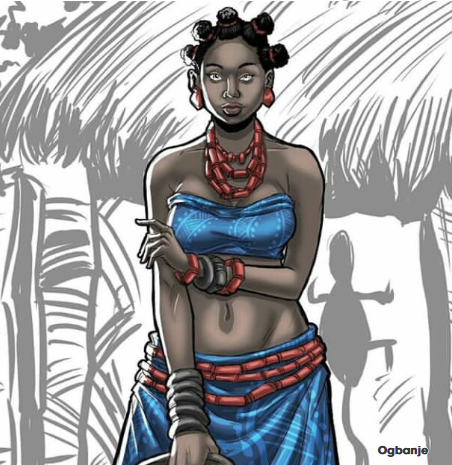Nnewi, Anambra State – In a bid to preserve cultural heritage and embrace traditional worship, the newly established Ogbanje Church opened its doors in Nnewi. The church’s congregation worship service went viral in a recorded video of their occasion with jubilant singing and dancing to the tunes of songs praising revered river goddesses in the Nnewi community.
A video circulating on social media captured the vibrant scene, as members joyously expressed their devotion to the ancient river deities through song and dance. Led by a clergyman who spoke passionately in the Igbo language, the service aimed to promote the significance of understanding and revering local river goddesses over distant, unfamiliar biblical locations.
The unidentified cleric emphasized the importance of worshiping what one knows and understands, rather than blindly embracing unfamiliar traditions. He urged the congregation to reconnect with their cultural roots and celebrate the sacred rivers and goddesses native to their region. Drawing a comparison to how people mindlessly sing and dance to songs with biblical references, he highlighted the significance of knowing the origins and meanings behind the names and places they celebrate.
Supported by enthusiastic cheers from the congregation, the clergyman proceeded to lead the gathering in a praise song dedicated to the revered Ogbanje, a belief embraced by himself and others in the community. Ogbanje individuals, he claimed, experience prosperity and success by worshiping the rivers and goddesses they are familiar with, attributing their positive outcomes to this connection with their heritage.
Among the notable rivers and river goddesses mentioned during the service were Obò River, Mmiri Ele, Orasò River, Mmiri Edo, Ofala River, Ota, and Ezu River. Each of these holds a special place in the hearts of the local community, as they are intertwined with their history, culture, and beliefs.
The establishment of the Ogbanje Church signifies a renewed appreciation for indigenous customs and traditions, as well as a desire to pass down this cultural knowledge to future generations. As the church becomes a focal point for communal gatherings, its leaders intend to provide opportunities for members to learn more about their heritage and strengthen their bond with the land and deities that have shaped their identity.
While some critics may raise concerns about diverting from mainstream religious practices, supporters assert that this initiative serves as a vital platform for preserving the rich cultural tapestry of the Nnewi community. By maintaining a balance between tradition and modernity, the Ogbanje Church offers its congregation a unique spiritual experience rooted in their ancestral legacy.
As the church’s influence grows, it remains to be seen how it will impact the larger religious landscape in Nigeria and Africa. As the community looks forward to more worship services, seminars, and cultural events, the Ogbanje Church has taken the first step in safeguarding the customs that define its people, reflecting the profound bond between their spiritual beliefs and the rivers that sustain them.

